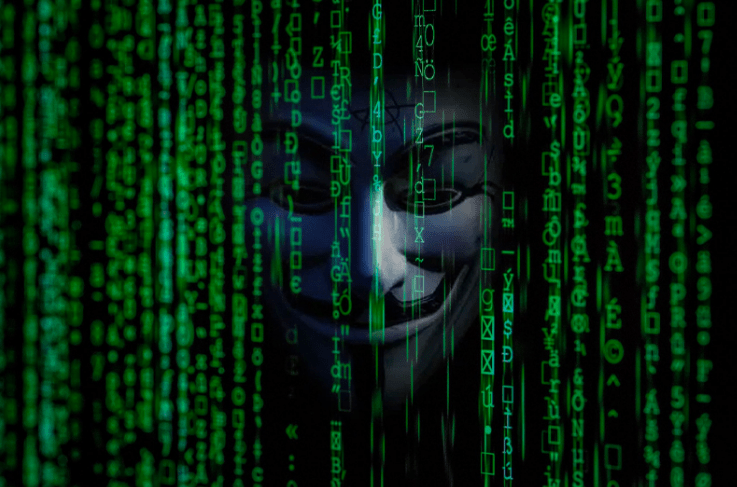George Floyd’s death: Anonymous, the Online Hacktivist Collective, Resurfaces

Anonymous is back. At least, that’s what it wants us to think.
The vast online collective known as Anonymous has no central leadership or authority. True to its faceless image, the organization often uses the symbol of the Guy Fawkes mask, pulled from the graphic novel V for Vendetta, in which an anarchist revolutionary dons the mask to hide his identity. Anonymous uses the tagline “we are legion” to suggest that the hacktivist community is made up of members from across the world, though it’s unclear who or how many individuals actually consider themselves a member of the collective.
Anonymous has no singular mission or agenda, but it has claimed responsibility for a variety of internet activist occurrences over the years, mostly either by hacking or taking down the websites of various government agencies in the US, Israel, Tunisia and Uganda as well as the internet presence of ISIS; child pornography sites; the hate group Westboro Baptist Church; and corporations including PayPal, MasterCard, Visa, and Sony. READ: Republican Voters Against Donald Trump to Launch $10 Million Ad Campaign
Why is Anonymous back in the news?
After years of relative inactivity, Anonymous emerged from the shadows of cyberspace this week in response to civil unrest related to the death of George Floyd.
On a Facebook page that claims to be affiliated with Anonymous, a video was released of a person in a Guy Fawkes mask, speaking through an electronically-disguised voice. The voice threatens to reveal to the world the “many crimes” of the Minneapolis Police Department, which lies at the center of George Floyd’s death.
Various cyber-attacks are now being attributed to Anonymous. Among them, the temporary take down of the Minneapolis PD website in a suspected Distributed Denial of Service (DDoS) attack, a type of hack that crashes a website with an overwhelming flood of data.
Anonymous is also claiming responsibility for hacking and circulating a database of email addresses and passwords from the Minneapolis PD, though there is no evidence that the department’s database was ever actually hacked. One researcher, Troy Hunt, says that the information in the leak is likely to have been taken in a past data breach.
Furthermore, the website to a minor United Nations agency was hacked and transformed into a memorial page for George Floyd, a stunt for which Anonymous also claims responsibility.
Finally, the group released what it’s calling “The Little Black Book of Jeffrey Epstein,” which it claims is a list of famous individuals who had connections the infamous pedophile’s child sex ring. Among the names included are Donald Trump, daughter Ivanka Trump, and Ivanka’s mother Ivana Trump. Anonymous says that further damaging information regarding the President will soon be dispersed.
Is the return of Anonymous credible?
Since there is no central authority governing Anonymous, anyone can claim to be affiliated with the hacktivist collective. As a result, its priorities and targets can be hard to pin down and often vary depending on which members of the group are acting. In recent days, various Twitter accounts claiming to be connected to Anonymous have tweeted plans to unveil troves of information that will damage the Minneapolis PD, but it’s hard to tell which of these loosely-affiliated activists actually has access to information or the ability to hack websites.

 Good Grow: The Marijuana Farm Founded by Akufo-Addo’s Daughters
Good Grow: The Marijuana Farm Founded by Akufo-Addo’s Daughters  National Food Suppliers for Free SHS set to picket at Education Ministry
National Food Suppliers for Free SHS set to picket at Education Ministry  Information Ministry justifies ¢151k paid to staff as Covid-19 risk allowance
Information Ministry justifies ¢151k paid to staff as Covid-19 risk allowance  I’ll help farmers with tractors to increase productivity – Bawumia promises
I’ll help farmers with tractors to increase productivity – Bawumia promises  CETAG meets national teaching council to conclude on strike
CETAG meets national teaching council to conclude on strike  Adom Kyei Duah cannot be the Jesus that Christians seek – Christian Council of Ghana
Adom Kyei Duah cannot be the Jesus that Christians seek – Christian Council of Ghana  Bawumia’s smartphone pledge misguided and visionless – Adongo
Bawumia’s smartphone pledge misguided and visionless – Adongo